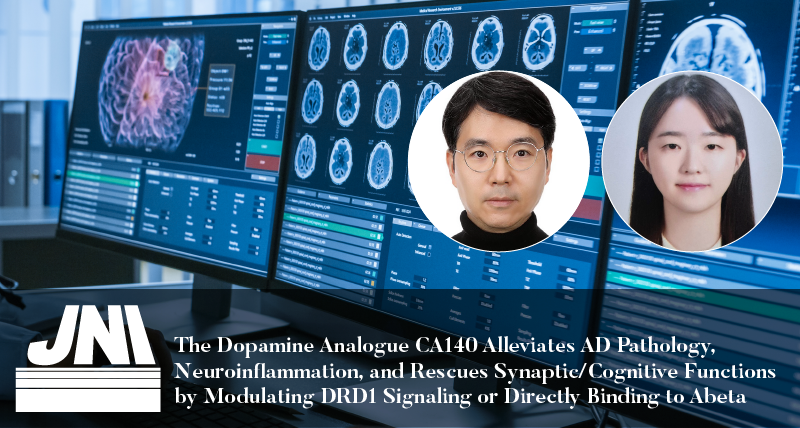The small molecule dopamine analogue (DA) CA140, which binds to Amyloid-β (Aβ), presents new possibilities for the treatment of degenerative brain diseases.
Professor Jae-Ick Kim and his research team in the Department of Biological Sciences at UNIST, in collaboration with a team, led by Director Hyang-Sook Hoe at the Korea Brain Research Institute (KBRI), has demonstrated that the newly synthesized compound CA140 alleviates symptoms of Alzheimer’s disease (AD).
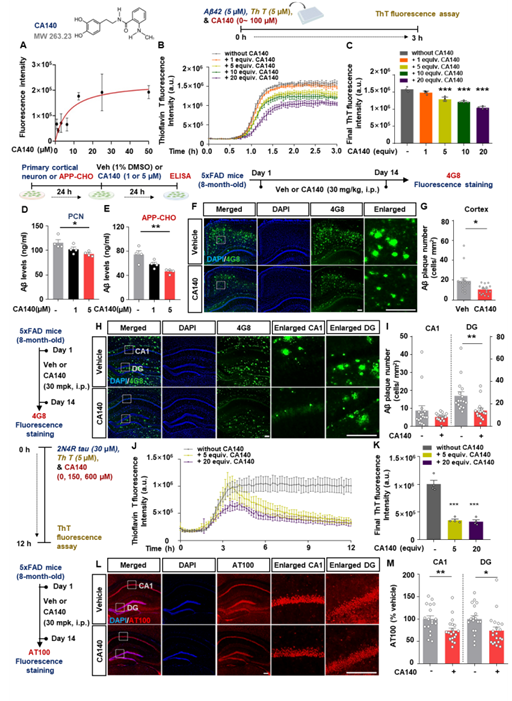 Figure 1. CA140 reduces Aβ/tau aggregate formation, Aβ levels, and AD pathology in vitro and in vivo.
Figure 1. CA140 reduces Aβ/tau aggregate formation, Aβ levels, and AD pathology in vitro and in vivo.
Dopamine is a key neurotransmitter involved in various brain functions, including motor control, cognition, and memory, and has recently garnered attention for its role in Alzheimer’s disease.
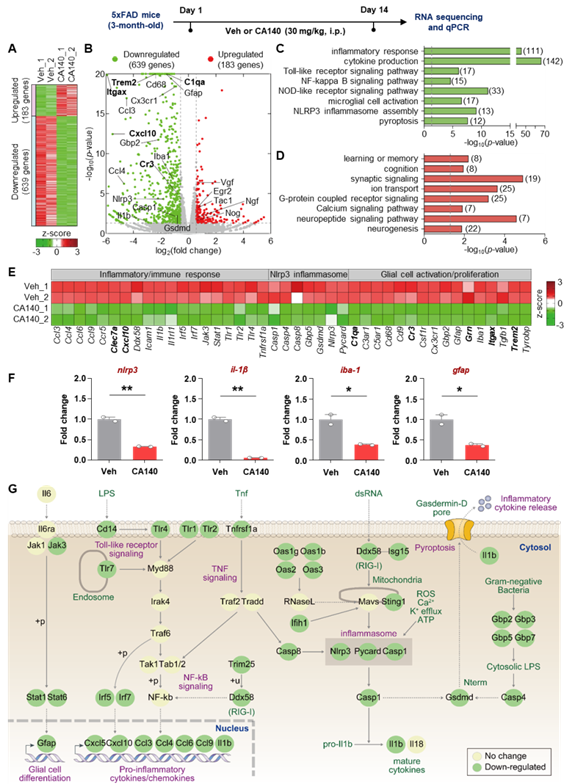
Figure 2. Identification of genes affected by CA140 in 3-month-old 5xFAD mice.
In the brains of individuals with AD, both functional abnormalities and changes in the expression levels of dopamine receptors DRD1 and DRD2 have been observed. Studies indicate that administering a dopamine precursor can partially improve synaptic function and cognitive abilities.
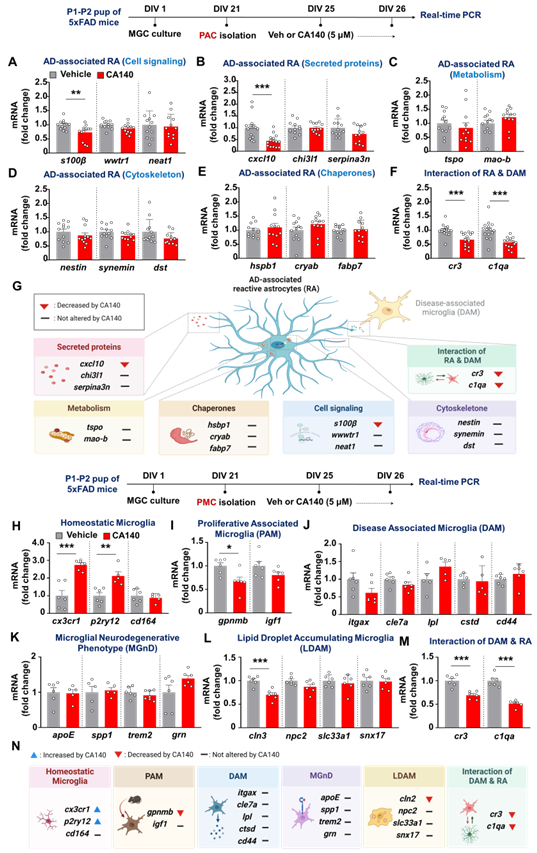
Figure 3. CA140 treatment regulates reactive gliosis in primary astrocytes (PACs) and primary microglia (PMC) from 5xFAD mice.
The research team confirmed that the administration of the DA analogue CA140 to a model of AD resulted in a reduction of Aβ accumulation and tau protein aggregation, which are major contributors to AD pathology. Furthermore, CA140 administration alleviated neuroinflammation associated with the disease and restored synaptic function, plasticity, and memory loss.
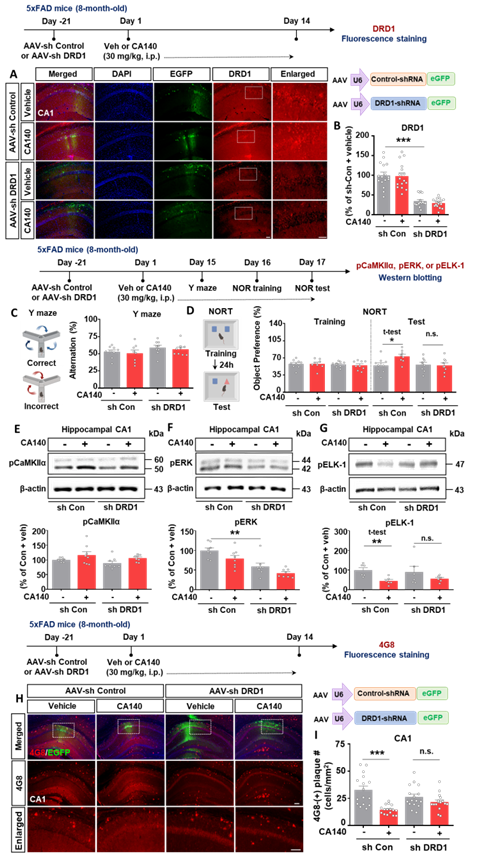
Figure 4. CA140 alleviates cognitive function/Aβ pathology through DRD1 signaling in an aged AD mouse model.
CA140 has been shown to enhance neuronal function and memory in both normal animal models and those with cognitive impairments. The research team hypothesizes that CA140 operates through the dopamine receptor DRD1 to improve memory and alleviate symptoms of Alzheimer’s disease.
Professor Kim stated, “We have confirmed the potential for DA analogues to significantly impact the treatment of not only Parkinson’s disease, but also Alzheimer’s disease.” He further added, “We hope that CA140 can serve as a foundational technology for developing new treatments for degenerative brain diseases, including Alzheimer’s.”
Researcher Ha-Eun Lee noted, “It is highly significant that CA140 demonstrates the ability to ameliorate the disease in Alzheimer’s animal models, particularly through its effects on synaptic plasticity. We aspire to contribute to the development of innovative treatments for degenerative brain diseases through this research.”
The findings of this research have been published in the Journal of Neuroinflammation on August 11, 2024.
Journal Reference
Sehyun Chae, Hyun-Ju Lee, Ha-Eun Lee, et al., “The dopamine analogue CA140 alleviates AD pathology, neuroinflammation, and rescues synaptic/cognitive functions by modulating DRD1 signaling or directly binding to Abeta,” J. Neuroinflammation, (2024).


